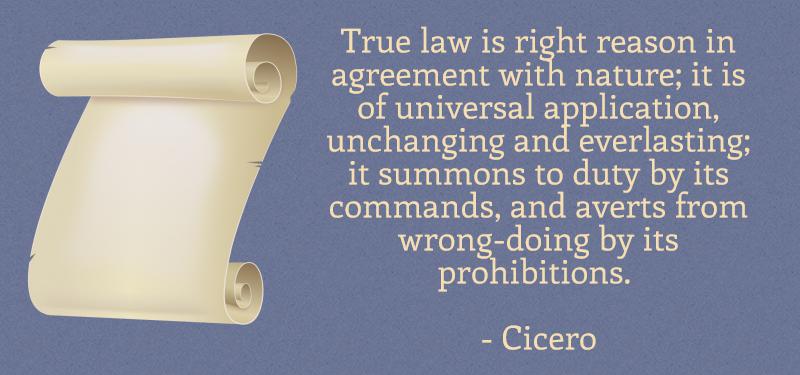Natural law is a common understanding of human nature and ethics. Humans are part of nature, so we are capable of perceiving and living by natural rules, and applying those rules in a universal way. Universally self-explanatory principles of equality, sovereignty, and dignity should guide our interactions with others.
Natural law based philosophy provides the foundation for natural rights or human rights, which undergird the Declaration of Independence, Constitution, and English and American systems of jurisprudence. Natural Law theories can be found in Greek, Roman, and ancient Buddhist texts. Plato, Aristotle, the Stoics, Cicero, Thomas Aquinas, Bacon, Grotius, Spinoza, Locke, Hobbes, and many others argued for various forms of natural law.
Natural Law philosophy should not be confused with the scientific laws of physics or biology. Human nature in the natural law sense, means that each of us has an innate tendency to behave in ways that are good for ourselves and good for others. We share common values and an understanding of ethics which derives from our nature. This is one of the things that makes us human.
We also have the free will to choose how to behave. Corruption represents a turning away from our true nature as humans. Things can go haywire if our understanding and feelings are corrupted by our upbringing, culture, and negative socialization.
The highest ideal is to unite your conduct with the good in nature; the interconnectedness and preciousness of life, and respect for yourself and others.










